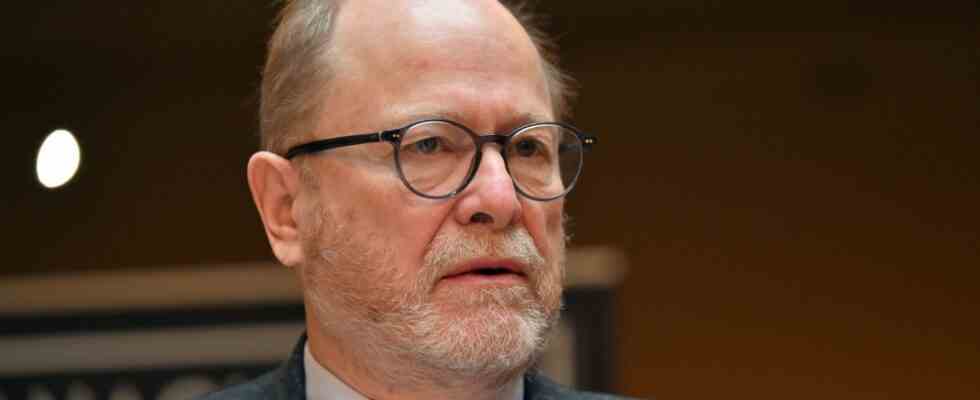In his major book “Trust and Violence”, which was published in 2008, Jan Philipp Reemtsma writes: “Fear of the future is the awareness of one’s own freedom: I don’t know what is possible for me, I don’t know who I will be tomorrow or will be the day after tomorrow.”
A lot has become possible for the author, who dealt with one of the themes of his life in the book. There is hardly a literary scholar or intellectual who – like Reemtsma on his 70th birthday this Saturday in Hamburg – is presented with a two-volume commemorative publication in which both the philosopher Jürgen Habermas and the incumbent Chancellor have written contributions.
Olaf Scholz writes: “I am grateful to Jan Philipp Reemtsma for his thoughts on the category of trust.” Chancellor Scholz tries to respectfully connect his ideas of respect and public spirit to Reemtsma’s thinking. The 93-year-old Habermas (for whom Reemtsma once held the Peace Prize laudatory speech in the Paulskirche) praises an “admirably original life’s work” in his Festschrift essay and acknowledges Reemtsma’s intention in dealing with National Socialism and the Holocaust, “also in historical retrospect to awaken the consciousness of one’s own moral responsibility”.
How could such a level of honor come about? It all started when a young, bright mind, a precocious bookworm, got an inordinate amount of money. Heir to a cigarette factory whose shares he sold at the age of 27 – tobacco money now considered even dirtier than it was then – Jan Philipp Reemtsma decided to spend his millions on good and spiritual things: on a Hamburg Institute for Social Researchwhich he directed himself from 1984 to 2015, which to this day has produced nothing but clever analyzes of sociology and contemporary history and has employed just as clever people, but which also, with its two exhibitions on the crimes of the Wehrmacht in World War II, the self-image of the republic, with a flawless “coming to terms with the past” to be practically finished.
Susanne Fischer, Gerd Hankel, Wolfgang Knöbl (eds.): The presence of violence. Festschrift for Jan Philipp Reemtsma. Zu Cleats, Springe 2022. 2 vols., 1004 pages, 68 euros.
(Photo: zuKlampe/zuKlampe)
Reemtsma also gave and spends the money for the care and generous edition of apparently more eccentric authors. Arno Schmidt and Christoph Martin Wieland, who is still the least known of the German classics and enlighteners, were particularly loved Good Ossmannstedt restored near Weimar and provided with a new permanent exhibition – this commitment will be crowned for the time being next March, when Reemtsma’s own large Wieland biography is to be published.
According to an old hymn, “earthly wealth” is, unlike spiritual wealth, “consumed”. Reemtsma’s life shows the potentials in both directions: Prosperity can lead to amazing patronage, where the donor is up to date with his objects; but also to the covetousness that attracts a criminal, in this case his name is Thomas Drach. On March 25, 1996, he kidnapped Reemtsma and locked him in a basement for 33 days. He found himself a victim in one of the most spectacular criminal cases of his time, which he – from his point of view: how else? – also processed in writing. Be as it is son Johann Scheerer did in two books.
Reemtsma has always credibly asserted that his deep interest in the “senses of grandiosity” associated with the use of violence, in everyday life and in wars, also exists independently of his biographical experiences. In the spirit of the Enlightenment culture of the eighteenth century, however, he never artificially separated person and work. This, alongside all his writing and influence as a sponsor, makes up his gentle authority: Reemtsma has not pushed himself to the fore, but when asked he gives information about himself and his experiences.
This is Jan Philipp Reemtsma’s life’s work so far: expecting the worst without illusions and at the same time considering it worthwhile to continue working on humanity.

